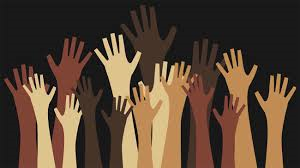Over the last few years, mental health has become widely accepted as “just as important and treatable as physical health.” Due to the growing conversation surrounding this subject, access to mental health services has become easier to achieve and has become more affordable. At least this is the case for some individuals. Despite the advances health care is making in terms of mental health services, there are a lot of people that still have a difficult time getting access to these mental health services. Even when individuals are able to get access to services, they are often costly and even unaffordable for some. A majority of the people facing these struggles are members of minority groups. Minority groups face numerous barriers when attempting to receive access to medical services. These often include mental health services. In a series of fact sheet assembled by the American Psychiatric Association, they include several statistics regarding minorities and access to mental health. One of these fact sheets states that people from racial/ethnic minority groups are less likely to receive mental health care. They also note that mental illness consequences in minority groups may be long lasting.
In addition to the items mentioned above, the American Psychiatric Association also included a list of factors affecting access to treatment by members of diverse ethnic/racial groups.These factors include:
• Members of minority populations are often under-insured or lack insurance all together
• The presence of mental illness stigma- stigmas are often greater among minority populations
• There is a lack of diversity among mental health care providers
• There is a lack of culturally competent providers
• The existence of language barriers
• Minorities experience distrust in the health care system
• There is inadequate support for mental health service in safety net settings (uninsured individuals, individuals on Medicaid, Health Insurance Coverage other vulnerable patients)
Another organization that is concerned about this growing problem is the National Alliance on Mental Health. In an article published in 2017, they list several ways that we can make changes in the flawed mental health system. These changes will aid these minority populations in receiving access to affordable health care:
• Encourage mental health organizations to include minorities on staff or boards of directors.
• Write, call or talk to legislators—both local and federal—to support efforts to improve access to and the quality of mental health services in your area.
• Be a spokesperson when there is an opportunity to speak out on behalf of minority mental health. Share information you’ve learned about accessing quality care to others.
• Try to be more open and understanding towards what minority communities might be experiencing that you might not.
Some action has already been taken to address this ever-growing problem. In fact, the month of July is minority mental health awareness month, but there are still many changes that need to be made to address this lack of access to mental health services and you can be a part of the solution. You don’t have to wait until July to help implement change. Get started today!
For more information regarding minority groups and access to mental health visit these website links to the home pages of the organizations mentioned in this article.https://www.nami.org/Home
https://www.psychiatry.org/


